
Five Laws
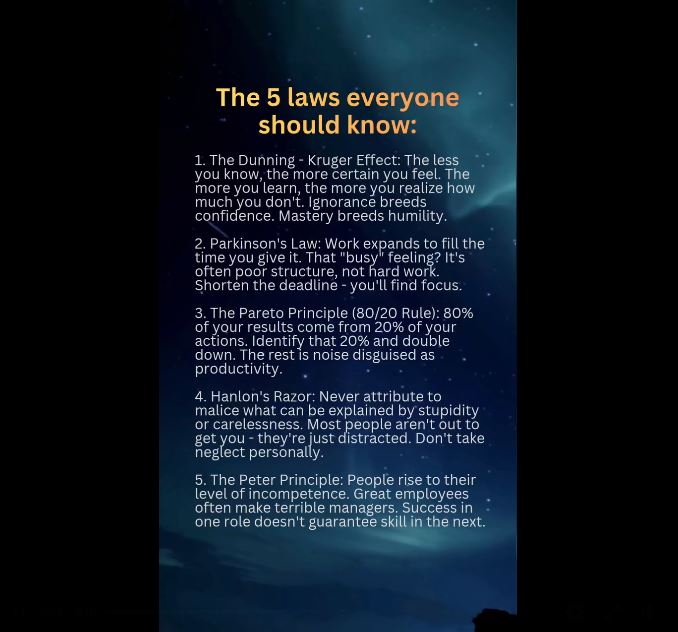
Quote of the Day
“If you are working on something that you really care about, you don’t have to be pushed. The vision pulls you.” – Steve Jobs, Entrepreneur (1955 – 2011)
Me Too In Classroom
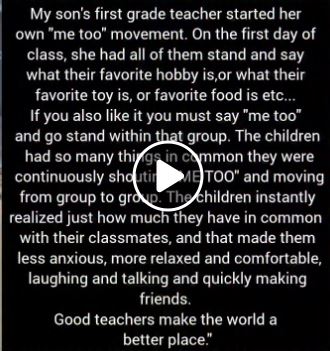
George Washington Carver
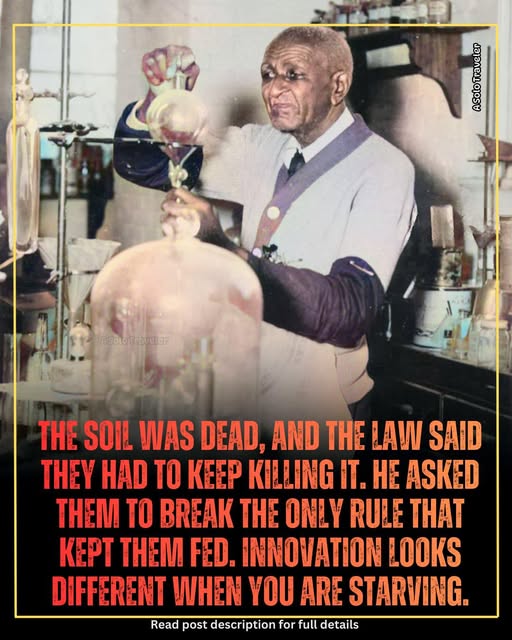
The gray dust of Macon County, Alabama, did not smell like earth. It smelled like ash. In October of 1896, a man in a crisp suit knelt in a field that had refused to grow a crop for three years. He ran the dry powder through long, sensitive fingers.
There was no life in it. The man was George Washington Carver, and he had just arrived from Iowa State University. He held a master’s degree in agricultural science, but standing there in the heat, he realized his degree meant nothing to this dead ground. The soil was not resting. It was starving.
He looked up at the farmhouse. It was a single-room shack with gaping holes in the walls. The family watching him was gaunt, their eyes hollow from a diet of salt pork and cornmeal. They were waiting for him to leave so they could go back to worrying about how to survive the winter. They did not know that the man kneeling in their dirt was about to start a war against the economy of the entire South.
The problem was visible in every direction. For decades, the South had planted only one thing. Cotton was the currency, the culture, and the king. But cotton is a cruel master. It acts like a vampire to the soil, sucking out the nitrogen and nutrients until the earth turns to dust.
In the late 19th century, the cycle was brutal. Farmers, both Black and white, lived as sharecroppers. They did not own the land they worked. They borrowed tools, seeds, and food from the landowner or the local merchant, promising to pay it back with the harvest. It was a system designed to keep people in debt.
When the soil died, the harvest failed. When the harvest failed, the debt grew. Families were trapped in a prison without bars, bound to land that could no longer feed them. Carver saw this within his first month at the Tuskegee Institute. He saw children with bowed legs from rickets and swollen bellies from pellagra. He realized that before he could be a scientist, he had to be a survivalist.
He tried to explain the chemistry. He told them that the land needed to rest from cotton. He told them to plant cowpeas, sweet potatoes, or peanuts—crops that would pull nitrogen from the air and put it back into the ground.
The system did not allow it.
The Southern agricultural economy was a locked engine. Banks and merchants would not lend money for peanuts or peas. They only recognized cotton. The “crop lien” system meant that a farmer’s future harvest was already owned by the merchant before a single seed was planted. If a farmer tried to plant sweet potatoes to feed his starving children, the merchant cut off his credit. No credit meant no tools, no seed, and no food for the winter. The rule was absolute: Plant cotton, or starve immediately.
This economic machine worked perfectly for the few who owned the ledgers. It worked until it met a man who did not care about money, but cared deeply about nitrogen.
Carver stood on a porch in 1897, holding a handful of dried cowpeas. He offered them to a weathered farmer who had just lost his entire cotton crop to disease. The farmer looked at the peas, then at his barren field, and shook his head. He didn’t take them. He couldn’t. Taking the peas meant breaking the contract with the merchant. It was a quiet rejection, born of fear. Carver put the peas back in his pocket. He realized then that being right was not enough.
He retreated to his laboratory, but not to hide. He began to experiment not with high-yield fertilizers that the poor could not afford, but with swamp muck and forest leaves. He turned compost into gold. But he knew the farmers would not come to the school. They were too tired, too poor, and too ashamed of their clothes.
If the people could not go to the school, the school would have to go to the people.
Carver designed a wagon. It was known as the Jesup Agricultural Wagon, a “Movable School.” It was a strange sight—a sturdy carriage loaded with churns, jars, seeds, and plows, pulled by mules across the rough, red-clay roads.
The struggle was slow and exhausting. Carver would pull the wagon up to a church or a dusty crossroads. People would gather, skeptical. They expected a preacher or a tax collector. Instead, they got a man with a high voice who rolled up his sleeves and started digging in the dirt.
He did not lecture them on chemistry. He showed them. He would take a small patch of their ruined land and work it his way. He used the muck from the swamps to fertilize it. He planted the “forbidden” crops—the legumes and the sweet potatoes.
Week after week, month after month, he returned. The farmers watched. They saw the patch of land Carver tended turn dark and rich. They saw the cotton in his demonstration plot grow tall, while their own plants remained stunted.
But the fear of the merchants remained. To break it, Carver had to prove that the alternative crops had value. He wasn’t just fighting bad farming; he was fighting the market. If they couldn’t sell peanuts, they wouldn’t plant them.
So, he went into his laboratory at dawn and came out at dusk. He took the humble peanut and the sweet potato and dismantled them chemically. He found milk, oil, flour, dyes, and soaps hidden inside. He created recipes. He printed bulletins on cheap paper—simple guides on how to cook and preserve these new crops so that even if the merchants wouldn’t buy them, the families could eat them.
He handed out these bulletins from the back of his wagon. He cooked meals for the farmers’ wives, showing them that the “weed” called the peanut could replace the expensive meat they couldn’t afford.
Slowly, the grip of the system loosened. A farmer here, a family there, began to hide a patch of peanuts or sweet potatoes in the back acres. They saw their children grow stronger. They saw the soil in those patches turn dark again. When the boll weevil beetle eventually marched across the South, devouring the cotton fields and bankrupting the old system, the farmers who had listened to the man on the wagon did not starve. They had something else to sell. They had something else to eat.
Carver never patented his discoveries. He claimed the methods came from God and belonged to the people. By the time he was an old man, the South was green again. The gray dust was gone, buried under layers of rich, restored earth.
He had not just fixed the soil. He had broken the economic chains that bound the poor to a dying crop. He proved that science only matters when it serves the person with the least amount of power.
Sources: Tuskegee University Archives; McMurry, L. O. (1981), George Washington Carver: Scientist and Symbol.
Ferdinand Demara
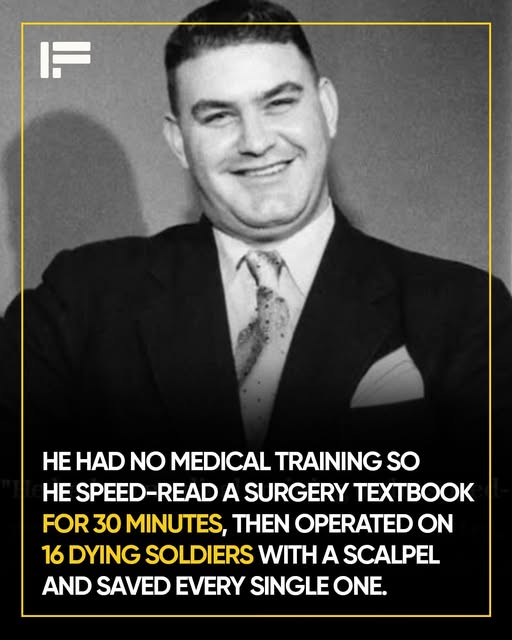
(Tom: The really important thing that determines a man’s productive capacity is, can he learn and can he accurately apply what he learns to produce the desired product.)
He had no medical degree. No surgical training. No license of any kind.
And yet, after half an hour with a textbook, he picked up a scalpel and saved the lives of sixteen wounded soldiers.
The wounded arrived just before nightfall in 1951, during the Korean War.
A small South Korean junk eased alongside the HMCS Cayuga, a Canadian destroyer operating off the Korean coast. Inside were guerrilla fighters from a failed commando raid. Some were torn open by shrapnel. One man had a bullet lodged dangerously close to his heart. Another had injuries so severe that amputation was the only chance of survival.
The crew turned instinctively to the ship’s surgeon, a calm, capable man serving under the name Joseph Cyr.
There was only one problem.
He wasn’t Joseph Cyr.
And he wasn’t a doctor.
The man wearing the surgeon’s uniform was Ferdinand Waldo Demara, an American with no medical training whatsoever. Months earlier, he had stolen the real Dr. Joseph Cyr’s identity and credentials and used them to enlist in the Royal Canadian Navy, which was urgently recruiting medical officers for wartime service.
Now his deception had reached its breaking point.
Demara understood the stakes immediately. If he confessed, the wounded men would almost certainly die before help could arrive. If he tried to operate, he could kill them himself.
He chose to operate.
He ordered the crew to prepare the patients for surgery and retreated to his cabin. There, he opened a medical textbook and began reading with ferocious concentration, focusing on wound extraction, chest surgery, and emergency amputation. His entire surgical education lasted about thirty minutes.
Then he walked into the operating room.
Throughout the night, Demara performed one operation after another. He removed shrapnel. He closed deep wounds. He amputated a crushed foot. He extracted a bullet from a man’s chest, working perilously close to the heart. He relied on anatomy diagrams, logic, nerve, and an extraordinary ability to absorb information quickly.
When morning came, every single patient was alive.
The crew believed they had witnessed something close to a miracle and began preparing a recommendation for a commendation. That decision would ultimately expose him.
Ferdinand Demara was no ordinary impostor.
Born in 1921 in Massachusetts, he grew up during the Great Depression, watching his family fall from comfort into hardship. As a teenager, he ran away to join a monastery. When that life no longer suited him, he reinvented himself again and again.
Over the years, Demara successfully passed himself off as a monk, a psychology professor, a prison warden, a lawyer, a cancer researcher, and an engineer. He possessed an exceptional memory, remarkable intelligence, and a keen understanding of institutional behavior. He learned how professionals spoke, how authority sounded, and how confidence discouraged scrutiny.
He lived by two rules: never volunteer unnecessary information, and project certainty at all times.
When Demara joined the Royal Canadian Navy under a stolen identity, no one questioned him. Canada needed doctors. The war accelerated paperwork. His credentials were accepted at face value.
Aboard the Cayuga, Demara improvised constantly. When sailors came to him with ailments, he would excuse himself, sprint to his cabin, consult textbooks, and return with a confident diagnosis. He treated many conditions with penicillin, which was widely used at the time. When the ship’s captain needed teeth extracted, Demara performed the procedure successfully, earning praise for his steady hand.
But it was the night of the guerrillas that sealed his legend.
Ironically, his success led to his exposure. Canadian newspapers praised “Dr. Joseph Cyr” for his heroism. One reader was the real Dr. Cyr’s mother, who knew her son was safely practicing medicine in New Brunswick. She contacted authorities. An investigation followed.
When confronted, Demara collapsed under the pressure. He secluded himself for days, sedated, before finally surrendering.
The Royal Canadian Navy faced embarrassment of its own making. Prosecuting Demara would highlight their failures, so they quietly discharged him, paid him in full, and deported him to the United States without charges.
In 1961, Hollywood dramatized his life in The Great Impostor, starring Tony Curtis. The fame ended Demara’s ability to disappear into new identities, but it also changed how people viewed him.
Years later, when Demara attended a reunion of the Cayuga crew, the sailors welcomed him warmly. They remembered him not as a fraud, but as the man who saved lives when no one else could.
Demara spent his final years as a legitimately ordained hospital chaplain in California. He died in 1982 at age sixty.
The question remains unsettled.
Was Ferdinand Demara a criminal, or was he a hero?
Was he reckless, or was he brilliant under pressure?
Do credentials define competence—or does action?
For sixteen wounded men on a ship in Korean waters, the answer was simple.
He showed up.
He acted.
And they lived.
Your Tomorrow Is Built Today
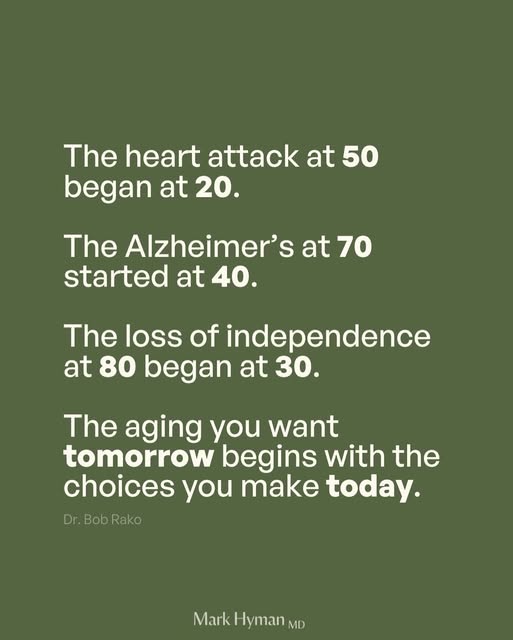
Every bite you take,
every thought you make,
every minute of HIIT
is building it.
Your future.
Build wisely.
Goldie Hawn
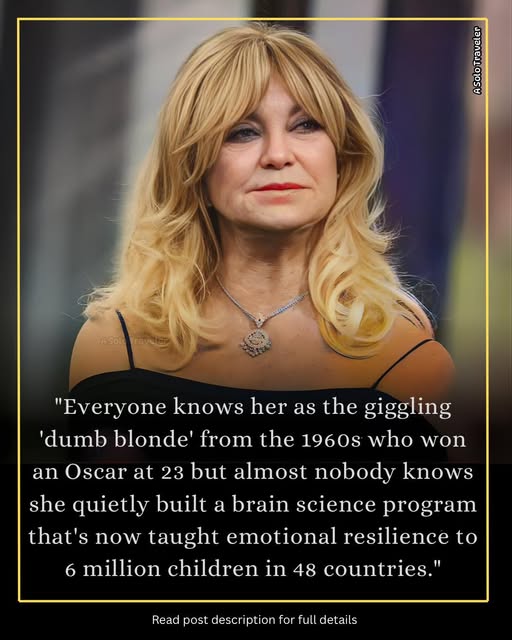
Everyone knows her as the giggling ’dumb blonde’ from the 1960s who won an Oscar at 23—but almost nobody knows she quietly built a brain science program that’s now taught emotional resilience to 6 million children in 48 countries.
In 1968, when Goldie Hawn appeared on TV covered in body paint and a bikini, giggling her way through comedy sketches as the show’s ditzy blonde, a women’s magazine editor confronted her. “Don’t you feel terrible that you’re playing a dumb blonde?” the editor asked.
“While women are fighting for liberation, you’re reinforcing every stereotype. ”
Goldie’s response was immediate: “I don’t understand that question because I’m already liberated. Liberation comes from the inside.”
At twenty-two, Goldie Hawn understood something that would define her entire life: you don’t have to play by anyone else’s rules to be free. You just have to know who you are. And she did.
Born in Washington, D.C., Goldie grew up training seriously as a ballet dancer—a discipline requiring precision, control, and relentless self-awareness. When she transitioned to comedy, those skills came with her. Her persona on Rowan & Martin’s Laugh-In was carefully crafted: the giggling go-go dancer delivering punchlines through high-pitched laughter.
She became a 1960s “It Girl” almost overnight. But what looked like spontaneous silliness was actually masterful comedic craft. Her giggle wasn’t random—it was strategic. Her wide-eyed innocence wasn’t naivete—it was performance. She played the dumb blonde so well that people missed the intelligence underneath. And that was exactly the point. In 1969, Goldie won both the Academy Award and Golden Globe for Best Supporting Actress for Cactus Flower.
She was twenty-three years old. Her film career exploded. But by the late 1970s, Goldie recognized an uncomfortable truth: actresses, no matter how successful, rarely controlled their own narratives.
So she became a producer. In 1980, she co-produced Private Benjamin with friend Nancy Meyers. Studios dismissed it as “too female,“ predicting audiences wouldn’t pay to see a woman’s story about independence. Goldie ignored them.
Private Benjamin became a massive box office hit and earned three Oscar nominations. She continued producing and starring in successful comedies throughout the 1980s and 1990s, crafting characters who laughed at their own pain and weaponized humor against aging and sexism.
But offscreen, something even more remarkable was happening. While her peers chased youth through surgery and desperate career moves, Goldie turned inward. She’d been meditating since the 1970s, long before mindfulness became trendy.
She studied neuroscience, positive psychology, and how the brain works. This wasn’t celebrity dabbling. This was serious, sustained study. And in 2003, it led to what might be Goldie’s most important work.
Alarmed by increases in school violence, youth depression and suicide, Goldie founded The Goldie Hawn Foundation. Working with leading neuroscientists and educators, the foundation developed MindUP—an evidence-based curriculum teaching children social-emotional skills and mindfulness.
MindUP teaches children how their brains work, how to manage stress through “brain breaks,“ how to regulate emotions, build empathy, and develop resilience.
The program is based on actual neuroscience. Research has shown that students using MindUP demonstrate improved focus, increased empathy, better academic performance, and higher levels of optimism.
“If students take two minutes for a brain break three times a day,” Goldie explained, “optimism in the classroom goes up almost 80 percent. ”The program has now served over 6 million children in 48 countries. Read that again: 6 million children.
48 countries. The “dumb blonde” from the 1960s quietly built a global program that’s teaching emotional resilience to millions of kids—many of whom have no idea who Goldie Hawn even is.
This work—sustained, focused on children most people in Hollywood never think about—might be Goldie’s most enduring legacy. Throughout all of this, she’s maintained remarkable stability.
She’s been with Kurt Russell since 1983—over forty years together without marrying. She raised four children who’ve pursued their own careers with her support.
Now in her late seventies, Goldie remains selective about her projects. She took a fifteen-year break from film, returning in 2017 for Snatched with Amy Schumer—who had grown up watching Goldie’s films and wanted to work with her. When asked about ageism in Hollywood, Goldie’s response was characteristically pragmatic: “You think you’re going to fight the system? Anger doesn’t get you anywhere. It’s not productive.”
Instead of fighting battles she couldn’t win, she changed the battlefield. She produced. She built a foundation. She taught millions of children. She lived life on her own terms.
Looking back, Goldie Hawn’s life reveals a consistent pattern: she never let anyone else define her worth. When critics dismissed her as a dumb blonde, she won an Oscar. When Hollywood tried to limit her to acting, she became a producer.
When fame threatened to consume her, she turned to meditation and neuroscience. When she saw children struggling, she built a global program to help them.
The giggle that made her famous was never the whole story. It was the disguise that let her do everything else. Goldie Hawn proved that you don’t have to shout to be powerful. You don’t have to reject femininity to be feminist.
And you don’t have to choose between success and substance—you can have both, as long as you know who you are. She smiled her way through a system designed to limit her, then quietly built an empire that had nothing to do with that system’s approval.
6 million children in 48 countries have learned emotional resilience from a program created by the woman America knew as the giggling blonde in a bikini. That’s not just a career. That’s a masterclass in playing the long game.
Because the greatest act of resistance isn’t fighting the stereotype. It’s using it as cover while you do the real work. And Goldie Hawn has been doing the real work for more than fifty years.
Clair Patterson
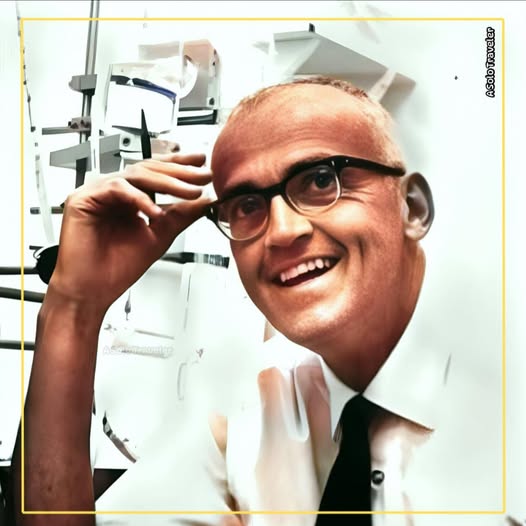
(Tom: We all owe this being a debt of thanks!)
He discovered how old the Earth was. Then he discovered something that could destroy us all.
For thousands of years, humanity wondered about the age of our planet. Religious texts offered one answer. Philosophers debated another. Scientists made educated guesses based on fossils and rock layers. But nobody actually knew.
Until a quiet scientist named Clair Patterson figured it out in 1953.
He should have become instantly famous. His name should have appeared in every textbook. Instead, what he discovered next turned him into a target. He found himself standing alone against one of the most powerful industries on Earth, fighting a battle that would determine whether millions of children would grow up with damaged minds.
And for decades, almost nobody knew his name.
Patterson’s journey began in the late 1940s at the University of Chicago. He was a young geochemist with an impossible assignment: measure the precise amount of lead isotopes in a meteorite fragment called Canyon Diablo.
The theory was elegant—if he could measure these specific lead ratios accurately, he could calculate when the solar system formed, and therefore, when Earth was born.
But there was a problem that nearly broke him.
Every time he tried to measure the lead in his samples, the numbers were wildly inconsistent. One day high, the next day higher, never stable. His equipment seemed fine. His calculations were correct. Yet the data was chaos.
Most scientists would have given up or blamed the methodology. Patterson was different. He possessed an almost obsessive attention to detail and patience that bordered on stubborn madness.
One day, he realized something shocking: the problem wasn’t his rock sample. The problem was everything else.
There was lead everywhere. On the lab benches. In the air. Tracking in on people’s shoes. Floating as invisible dust particles. The entire world was contaminated, and it was sabotaging his measurements.
So Patterson did something unprecedented. He built the world’s first ultra-clean laboratory.
He scrubbed every surface until his hands bled. He sealed cracks in walls with tape. He installed specialized air filters. He made his assistants wear protective suits and wash repeatedly before entering. For years, he cleaned and refined and eliminated every possible source of contamination.
Finally, in 1953, he achieved it. He got a clean reading. He ran the numbers through a mass spectrometer, performed the calculations, and suddenly held an answer that no human in history had ever known:
4.55 billion years.
The Earth was 4.55 billion years old.
It’s said that in his excitement, he drove straight to his mother’s house in Iowa and told her he’d solved one of humanity’s oldest mysteries. The weight of not knowing had finally lifted.
But while building his clean room, Patterson had stumbled onto something far more disturbing.
Where was all this lead coming from?
Lead is naturally rare on Earth’s surface. It stays locked deep underground in mineral deposits. It doesn’t float freely in the air. It doesn’t coat laboratory tables. Yet it was everywhere—in quantities that made no sense.
Patterson began testing the world outside his lab. Ocean water. Mountain snow. Everywhere he looked, lead levels were hundreds of times higher than natural background levels.
And then he understood.
Since the 1920s, oil companies had been adding a compound called tetraethyl lead to gasoline. It prevented engine knock and made cars run smoother. But every car on every road was functioning as a poison dispersal system, spraying microscopic lead particles into the air with every mile driven.
Lead is a neurotoxin. It damages developing brains. It lowers IQ. It causes behavioral problems, aggression, and cognitive impairment. And an entire generation of children was breathing it every single day.
Patterson had to make a choice.
He was a geochemist. His job was studying rocks and isotopes, not fighting corporations or advocating for public health. He had stable funding and a promising academic career. He could have simply published his Earth-age discovery and moved on to the next project.
But he couldn’t unsee what he’d found.
In the mid-1960s, he published papers warning that industrial lead contamination was poisoning the environment and harming human health.
The response was swift and brutal.
The lead industry was massive, wealthy, and had no intention of losing billions in revenue. Their chief scientific defender was Dr. Robert Kehoe, who had spent decades assuring the public that environmental lead was natural and harmless. Kehoe was polished, well-funded, and had the backing of powerful corporations.
When Patterson challenged this narrative, the industry attempted to buy his silence. Representatives visited him offering generous research grants and institutional support. All he had to do was redirect his focus elsewhere.
Patterson refused.
So they tried to destroy him professionally.
His funding from petroleum-connected sources was immediately cut. The industry pressured his university to dismiss him. They used their influence to block his papers from peer-reviewed journals. They publicly dismissed him as an overzealous geologist stepping outside his expertise.
For years, it worked. Patterson was marginalized, labeled an alarmist, and isolated from mainstream scientific discussions.
But Patterson had something the industry couldn’t counter: evidence from before the contamination began.
He realized he needed a time machine—a way to prove what Earth’s atmosphere was like before automobiles. So he traveled to one of the most remote places on the planet: Greenland.
In brutal, freezing conditions, Patterson and his team drilled deep into ancient glaciers, extracting long cylinders of ice. These ice cores were frozen time capsules. Snow that fell in 1700 was preserved deep in the ice. Snow from 1900 was higher up. Snow from the 1950s was near the surface.
Back in his clean lab, Patterson carefully melted layers of ice from different time periods and measured their lead content.
The results were devastating to the industry’s claims.
For thousands of years, atmospheric lead levels were essentially zero. Then, starting precisely in the 1920s—exactly when leaded gasoline was introduced—the levels shot upward like a rocket. The graph was unmistakable. The contamination wasn’t natural. It was recent, man-made, and accelerating.
Armed with this irrefutable proof, Patterson returned to the fight.
He testified before congressional committees, sitting across from industry lawyers who tried to confuse the science. He wasn’t comfortable with public speaking.
He was nervous, awkward, and preferred the quiet predictability of his laboratory. But he refused to back down.
He told legislators they were poisoning their own children. He showed them the ice core data. He made the invisible visible.
Slowly, reluctantly, the truth broke through.
Other scientists began supporting his findings. Public health advocates took notice. Parents started demanding action. The tide turned.
In the 1970s, the United States passed the Clean Air Act and began the slow process of removing lead from gasoline. It took years of regulatory battles, but eventually, unleaded gasoline became the standard.
The results were nothing short of miraculous.
Within years, blood lead levels in American children dropped by nearly 80%. An entire generation was saved from cognitive impairment, behavioral disorders, and reduced intelligence. Millions of lives were protected from lead-related health problems.
Clair Patterson had won.
Yet when he died in 1995, few outside the scientific community knew his name. He never received a Nobel Prize. He never became wealthy. He simply returned to his laboratory and continued studying the chemistry of the oceans and the history of the Earth.
Patterson’s story is a reminder of what integrity looks like when nobody’s watching.
It’s easy to do the right thing when the crowd is cheering. It’s infinitely harder when powerful interests are trying to ruin you, when your career is threatened, when taking the money would be so much easier.
He could have stayed silent. He could have enjoyed a comfortable, well-funded career studying rocks while children’s minds were damaged. He could have said, “Not my problem.”
But he looked at the data, looked at the world, and decided truth mattered more than comfort.
He gave us the age of the Earth—a number that changed our understanding of time itself.
And then he gave us a future—a world where children could grow up without poison in their lungs.
We often imagine heroes as soldiers, activists, or celebrities. But sometimes a hero is just a stubborn man in a white lab coat, scrubbing a floor over and over, refusing to accept a convenient lie.
He cleaned the room.
And then he cleaned the world.
Twain On Education

Mark Twain tears apart the myth of education as obedience.
A diploma proves you followed instructions.
A grade proves you memorized the map.
Neither proves you understand the territory.
Schools produce workers who know how to comply.
Curiosity produces minds that know how to think.
Twain’s warning is sharp: intelligence is not measured by how well you pass tests — it’s measured by how well you question them.
